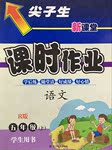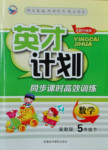题目内容
Alan took an early interest in gardening---first on his grandfather’s Yorkshire allotment in Ilkley, and then in his parents’ back garden. Small polythene(聚乙烯)greenhouses appeared in the back garden, and cacti(仙人掌)were bought from church markets.
Alan left school at fifteen with one `O’ level in Art and took a job as an apprentice(学徒)gardener in Ilkley Parks Department nursery, studying for his City and Guilds in Horticulture(园艺)in the evening.
He went on to horticultural college at Oaklands in Hertfordshire where he studied for one year full-time, being awarded the National Certificate in Horticultural. This was followed by three years at the Royal Botanic Gardens, Kew, resulting in the award of the Kew Diploma.
After two years as supervisor of staff training at Kew, Alan entered journalism where he became first a gardening books editor, and then Deputy Editor of Amateur Gardening magazine. He appeared regularly on BBC Radio and Television in programs such as Nationwide , Breakfast Time, Open Air, Pebble Mill, Songs of Praise, Titchmarsh’s Travels, and the Chelsea Flower Show. He presented the 100th edition of The Word for Channel 4, and hosted the quiz show Ask the Family.
Gardeners’ World and the hugely popular Ground Force, second only to Easterners in the BBC1 ratings, are broadcast as far as Australia, New Zealand and North America. After leaving both programs, Alan worked on two other series for the BBC to be transmitted in 2003 and 2004, one of them a landmark series on the natural history of Britain. Alan writes for the Daily Express, Sunday Express, Radio Times and BBC Gardeners’ World magazine, and has more than thirty gardening books to his credit. His four novels, as well as a book about his own life, have been best sellers.
Alan, 53, gardens organically, and lives with his wife, two daughters and a medley of animals.
1.We know that Alan ______in his school days.
A. was good at writing novels B. loved Horticulture very much even
C. didn’t do so well in his studies D. decided to be an apprentice
2.According to this passage, we can learn that______.
A. Alan accepted little education B. Alan wrote many books about food
C. Alan had never been married D. Alan was first a gardening books editor
3.Though the author doesn’t tell us directly, we can conclude that______.
A. Alan’s school teachers were not good at teaching the subject: Botany
B. when Alan was successful he was working as a journalist of the time
C. Alan had had four years of training in Horticulture before being a journalist
D. born as a man of many talents, Alan didn’t realize the fact until years later
4.Which of the following four programs is more popular than Ground Force in the BBC1 ratings?
A. Breakfast Time. B. Radio Time. C. Gardeners’ World. D. Easterners.
5. What’s the best title for the passage?
A. A Man of Many Talents. B. Botany Makes Him What He Is Today.
C. No Pains, No Gains. D. Can’t a Poorly-graded Student Be Successful?
1.C
2.D
3.C
4.D
5.B
【解析】 略

 尖子生新课堂课时作业系列答案
尖子生新课堂课时作业系列答案 英才计划同步课时高效训练系列答案
英才计划同步课时高效训练系列答案
| |||||||||||||||||||||||||||||||||||||||||||||||||||||||||||
| |||||||||||||||||||||||||||||||||||||||||||||||||||||||||||
Alan took an early interest in gardening---first on his grandfather’s Yorkshire allotment in Ilkley, and then in his parents’ back garden. Small polythene(聚乙烯)greenhouses appeared in the back garden, and cacti(仙人掌)were bought from church markets.
Alan left school at fifteen with one `O’ level in Art and took a job as an apprentice(学徒)gardener in Ilkley Parks Department nursery, studying for his City and Guilds in Horticulture(园艺)in the evening.
He went on to horticultural college at Oaklands in Hertfordshire where he studied for one year full-time, being awarded the National Certificate in Horticultural. This was followed by three years at the Royal Botanic Gardens, Kew, resulting in the award of the Kew Diploma.
After two years as supervisor of staff training at Kew, Alan entered journalism where he became first a gardening books editor, and then Deputy Editor of Amateur Gardening magazine. He appeared regularly on BBC Radio and Television in programs such as Nationwide , Breakfast Time, Open Air, Pebble Mill, Songs of Praise, Titchmarsh’s Travels, and the Chelsea Flower Show. He presented the 100th edition of The Word for Channel 4, and hosted the quiz show Ask the Family.
Gardeners’ World and the hugely popular Ground Force, second only to Easterners in the BBC1 ratings, are broadcast as far as Australia, New Zealand and North America. After leaving both programs, Alan worked on two other series for the BBC to be transmitted in 2003 and 2004, one of them a landmark series on the natural history of Britain. Alan writes for the Daily Express, Sunday Express, Radio Times and BBC Gardeners’ World magazine, and has more than thirty gardening books to his credit. His four novels, as well as a book about his own life, have been best sellers.
Alan, 53, gardens organically, and lives with his wife, two daughters and a medley of animals.
【小题1】We know that Alan ______in his school days.
| A.was good at writing novels | B.loved Horticulture very much even |
| C.didn’t do so well in his studies | D.decided to be an apprentice |
| A.Alanaccepted little education | B.Alan wrote many books about food |
| C.Alan had never been married | D.Alan was first a gardening books editor |
| A.Alan’s school teachers were not good at teaching the subject: Botany |
| B.when Alan was successful he was working as a journalist of the time |
| C.Alan had had four years of training in Horticulture before being a journalist |
| D.born as a man of many talents, Alan didn’t realize the fact until years later |
| A.Breakfast Time. | B.Radio Time. | C.Gardeners’ World. | D.Easterners. |
| A.A Man of Many Talents. | B.Botany Makes Him What He Is Today. |
| C.No Pains, No Gains. | D.Can’t a Poorly-graded Student Be Successful? |